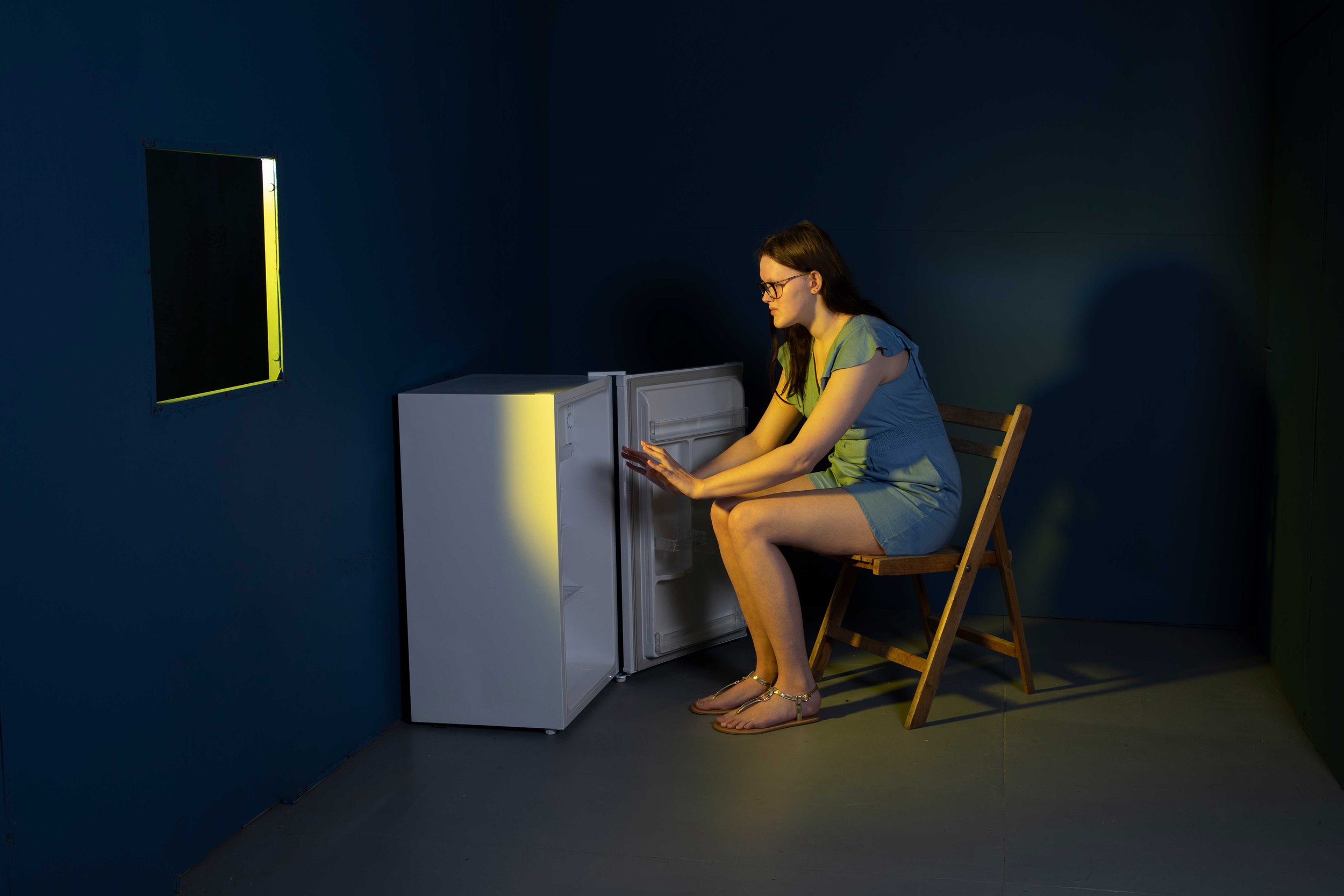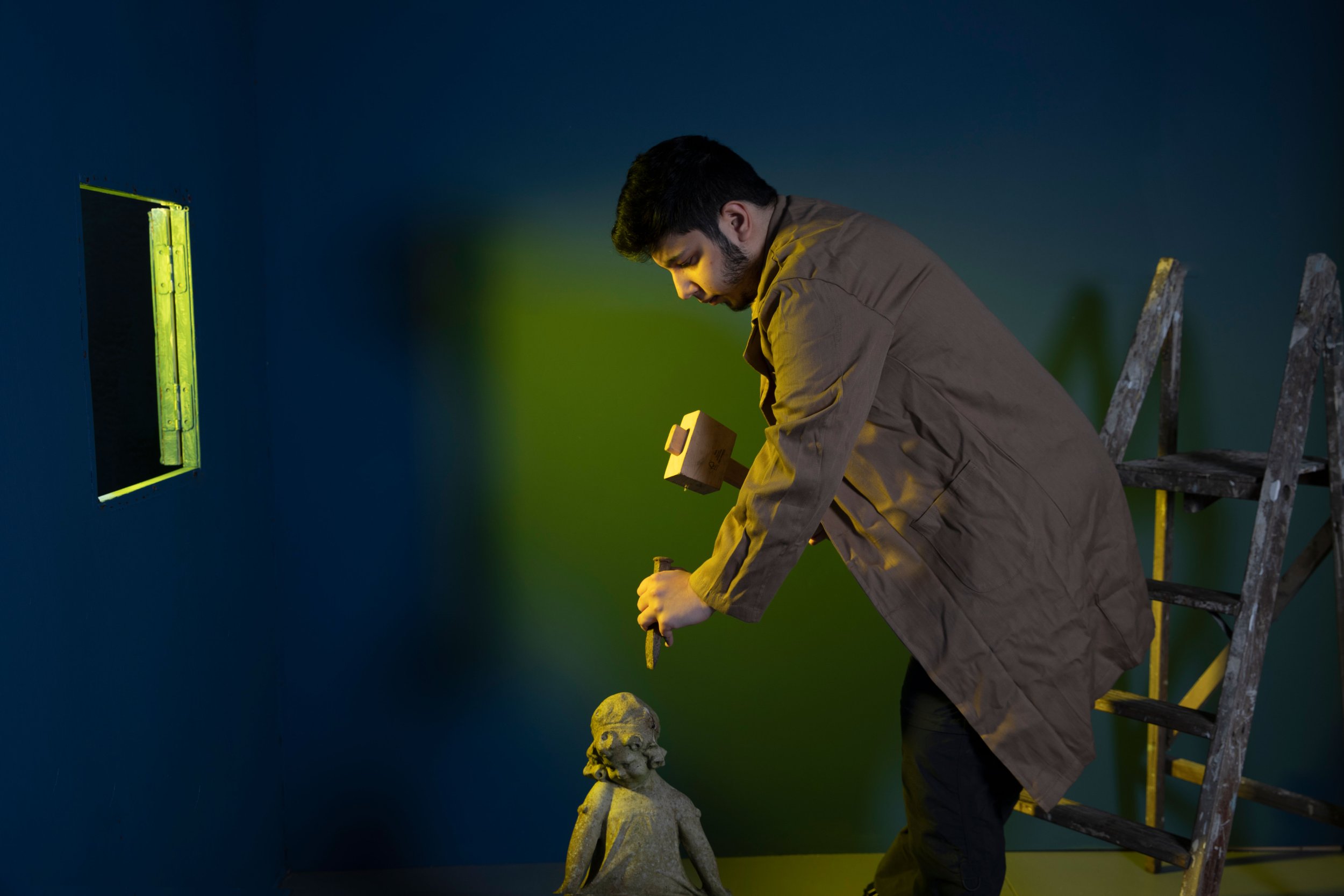Life with Behçet’s Disease is unpredictable and can happen in any part of your body.
Caroline is a paramedic, as well as a keen open water swimmer, both of which go some way towards explaining why she wasn’t initially overly concerned when the vision in her right eye became a little blurred while she was on holiday back in 2018. It felt as if there were something in her eye, and she hoped that the salt water would help flush out whatever was there so carried on swimming and enjoying her holiday. By the time they were due to fly home she was more concerned;
My vision became very blurred to the point where I was concerned about my driving, I didn't feel safe. I had thought that because I've been swimming maybe I had an infection in my eye, or something was in there. But when I came home from my holiday I went to the emergency department at her nearest Eye Hospital and they found that the back of my eye was inflamed and affecting one of the major blood vessels in my eye.
Caroline was incredibly fortunate because on the evening at which she presented to hospital the consultant on duty had recently completed his PhD, and had chosen Behçet’s Disease as his field of research. He felt that despite being so rare it was possible that she had the disease, and immediately referred her to a nearby Behçet’s Centre of Excellence at the Royal London Hospital. She feels that if she had seen a different doctor at a general A&E department it would be highly unlikely that Behçet’s would have been identified at that point.
Photograph by Ceridwen Hughes for Days of Rare exhibition
In many ways, this diagnosis changed Caroline’s life forever, but now looking back at her diagnosis she says;
On reflection, I probably had symptoms for about 10 to 15 years before being formally diagnosed. Behçet’s affects everyone differently. Some people suffer lots of joint pain, others have attacks of ulcers both orally and genitally. I am lucky, Behçet’s does not affect me in some of the very debilitating ways it affects others; there are many phenotypes. The type I have affects my eyes and my joints. I am prone to injury, the worst example of this was tearing the tissue in my hip joint, which affected my posture and walking for several months. But my biggest fear is permanent sight loss.
Having always been active, and living as healthily as possible, one of the biggest challenges was coming to terms with the reality of now needing to take medication every day, and learning to live with the uncertainty of the impact it may have on her life, especially her work as a paramedic, now, or in the future. Caroline loves her career and told us that;
My work is really important to me. I have a very physical job. And I'm conscious of getting injuries because I want to be able to work for as long as possible and have had injuries in the past that have really impacted my ability to walk and move. I am now required to take immunosuppressant medication daily to ensure the inflammation in my body is reduced. When my disease does flare, I am required to take high doses of steroids, which cause weight gain, visceral anxiety and insomnia. Having Behçet’s has been eye-opening, as a relatively fit individual, taking medications is a chore, but for my work and my passions in life, I understand that it is imperative. I think that it just brings into focus how important it is to look after yourself and to take your health seriously, even if you are a relatively young, fit, healthy individual. Do not ignore signs when they are when they're there. I think that was a good lesson for me.
Photograph by Ceridwen Hughes for Days of Rare exhibition
Behçet’s disease, also known as Behçet’s syndrome is a rare inflammatory disease that can affect almost any part of the body. The disease can lead to numerous conditions that can seem unrelated at first, and the main symptoms of Behçet's disease include genital and mouth ulcers, painful eye conditions and blurred vision, skin lesions, headaches and stiff and swollen joints. In severe cases, there's also a risk of serious and potentially life-threatening problems, such as permanent vision loss and strokes. Most people with the condition experience flare-ups or relapses, followed by periods where the symptoms ease, or even disappear.
Increased awareness of Behçet’s Syndrome and visibility and understanding for the many people whose lives are impacted by it is really important to Caroline. As with many invisible disease patients, she hopes that others will understand that people can be unwell and can suffer without obvious outward signs or symptoms. This is something that she has now carried into her work, knowing more acutely that a patient may be truly suffering without it being really visible. With regards to her own Behçet’s syndrome journey and the need to raise awareness, she says;
I think the main thing to be aware of is that it affects people so very differently. People mustn’t make assumptions about it. Most people wouldn't know that I had a rare condition. When I have needed to have treatment for Behçet’s, that typically involves having high dose steroids for example, the treatment has a big impact on me. For several weeks it affects my personality, affects my ability to think clearly, as well as other side effects. You almost feel like you want to justify why you've changed, why you've changed your behaviour, or why you're acting in a certain way, or you're a little bit brain foggy. But actually, you can't do that to everyone, you wouldn't want to share that with everybody! So people being aware that lots of people have underlying health issues that aren't necessarily really obvious is so important.
Caroline is very positive about her journey so far, especially when reflecting on her experiences as a patient within the NHS since her diagnosis.
Photograph by Ceridwen Hughes for Days of Rare exhibition
Many of the consultants, GPs, physiotherapists and other healthcare professionals she has seen have been understanding and aware of Behcet’s. Caroline feels this has been a result of a positive shift within the healthcare sector, and that;
GPs and other health care professionals will work with patients to try to better understand rare conditions and how they can affect people individually. Rather than telling patients what they need to do. It's more of a partnership of understanding and working together to try and improve things.
Behçet’s UK
The organisation supports all UK patients with Behçet’s, including those who've yet to be diagnosed, guiding them through the rare and complex lifelong condition.
You can listen to Caroline’s chat with Ilmarie Braun, Same but Different Project Manager on our podcast channel.








